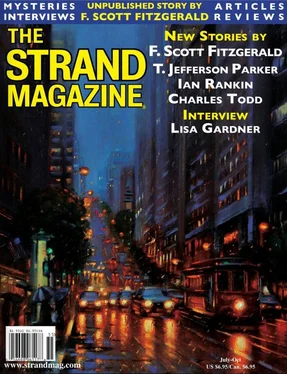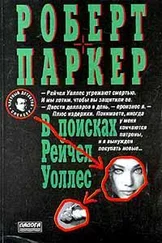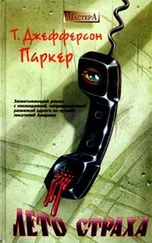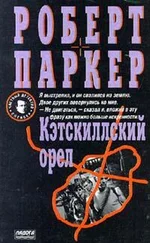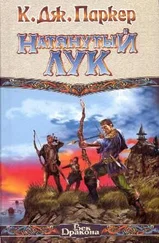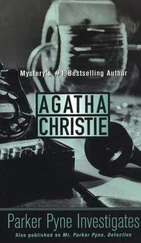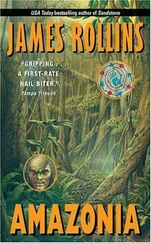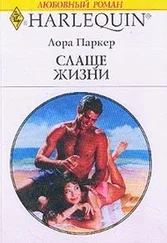Т Паркер - Amazonia
Здесь есть возможность читать онлайн «Т Паркер - Amazonia» весь текст электронной книги совершенно бесплатно (целиком полную версию без сокращений). В некоторых случаях можно слушать аудио, скачать через торрент в формате fb2 и присутствует краткое содержание. Город: Birmingham, Год выпуска: 2015, Издательство: The Strand Magazine, Жанр: Триллер, на английском языке. Описание произведения, (предисловие) а так же отзывы посетителей доступны на портале библиотеки ЛибКат.
- Название:Amazonia
- Автор:
- Издательство:The Strand Magazine
- Жанр:
- Год:2015
- Город:Birmingham
- ISBN:нет данных
- Рейтинг книги:4 / 5. Голосов: 1
-
Избранное:Добавить в избранное
- Отзывы:
-
Ваша оценка:
- 80
- 1
- 2
- 3
- 4
- 5
Amazonia: краткое содержание, описание и аннотация
Предлагаем к чтению аннотацию, описание, краткое содержание или предисловие (зависит от того, что написал сам автор книги «Amazonia»). Если вы не нашли необходимую информацию о книге — напишите в комментариях, мы постараемся отыскать её.
Amazonia — читать онлайн бесплатно полную книгу (весь текст) целиком
Ниже представлен текст книги, разбитый по страницам. Система сохранения места последней прочитанной страницы, позволяет с удобством читать онлайн бесплатно книгу «Amazonia», без необходимости каждый раз заново искать на чём Вы остановились. Поставьте закладку, и сможете в любой момент перейти на страницу, на которой закончили чтение.
Интервал:
Закладка:
T. Jefferson Parker
Amazonia
My name is Austin Fodder and I am twenty-four years old. It seems like a lifetime ago when, fresh out of the University of California, Irvine, I applied for a job at Authentic Adventures Travel, which was located just a few miles from the campus. I had never seen myself as part of the hospitality industry. But the online job description for a travel agent trainee called for a four-year degree, computer and writing skills, and an “adventurous spirit.” With dual majors in computer science and comparative literature, and a three-day cruise to my credit (Long Beach to Ensenada), I walked into AAT late that afternoon for an interview, my head held moderately high, believing I could do the job.
The agency was on the fifth floor of a mirrored tower in Newport Center. The elevator was swift and silent; the floor of the AAT lobby was red marble; the receptionist told me to have a seat. I did, and read through Authentic Adventures , a glossy magazine featuring new, classic, and future destinations. There were lots of pictures: placid-looking lagoons, jagged mountains, dense jungles abruptly ending at beaches on which colorful tribesmen stood. And quotes from happy travelers. According to my online research, AAT sent clients to properties all over the globe. None of the places were familiar. Many had names with exotic apostrophes, such as ‘Atlotl-Ton or B’att and all like that. The AAT slogan, which appeared on the cover under the title was: Real Won’t Wait.
I was collected in the lobby by a very tall young woman who introduced herself as Ivy Slattery. We walked down a long hallway and she slowed her stride to match my average-length legs. She held a black tablet to her chest with both hands, reminding me of Jamie Frost in eighth grade, who held her backpack to her chest in that same way, in order to — I think, but will never know — hide her breasts. The hallway walls were hung with dramatically enlarged photographs similar to those in the magazine, with quotes from AAT clients superimposed on them. There were also oversized images of the satisfied travelers’ faces. Everything was upscale and costly. Ivy’s heels on the marble made an authoritative sound. I wanted the job.
“Don’t let my father intimidate you,” said Ivy. “And don’t try to tell him anything but the truth. He’s got a very keen ear for bullshit.”
Ivan Slattery was a large man with long gray-black hair pulled back into a ponytail. His black suit hung shinily on his big frame. He had a wide nose with large pores visible even across the desk, and black, close-set eyes. He didn’t look like he could be Ivy Slattery’s father.
He confirmed that I had a current passport and was at least competent with a camera — not a phone camera, he insisted, but a real one with a decent zoom and fully waterproof. I felt as if opportunity’s door had been opened because I did have a current passport (used once, on the Long Beach-to-Ensenada cruise) and owned a waterproof camera (still in the box, grad gift from Mom and Dad, with note that encouraged me to “see this beautiful world”). When I told him I was competent with it, his black eyes bore into my face and I remembered what his daughter had told me about trying to fool him.
“We have a fam trip set for a very promising new destination,” he said. Ivan Slattery had a rough, fast voice, almost a growl. “My last available agent has contracted some mystery ailment. Again. I can’t do the fam trip myself. It’s going to have to be you, Houston.”
“It’s Austin, sir. What is a fam trip?”
“A familiarization trip. It’s them trying to impress us. If they do, we’ll sell the destination. If they don’t, we won’t. Either way, you take the trip, see the sights, hear the pitch. They’ll take good care of you, believe me. Be as demanding as you want. Act impressed but not overly. Your job is to document it all for me — and I mean thoroughly — and report back. Simple.” He leaned back, folded his hands over his stomach, and smiled cagily. “I have a good feeling about this place. In fact, I have already instilled early interest in some of our more adventurous clients. That is how my business works. I’m always two steps ahead of the game.”
“Great. What’s it called?”
“Playa Amazonia.”
“Very cool. What country is it in?”
Ivan tapped something on his tablet then raised a thick finger and stabbed one more key. “You figure it out. I just sent you all the information. You leave LAX tomorrow at six a.m. Don’t forget the passport, and pack according to the instructions. Get a good night’s sleep, Houston. I’m counting on you.”
Ivy rode down in the elevator with me. It was just us. She held the tablet to her chest and smiled at me not only as if I’d accomplished something important, but as if she’d known I would. I looked up at her. She had a slender face, eager blue eyes, and her hair was honey-blond. “I’m very happy for you,” she said. “And very proud.” She hooked a falling wave of hair behind her ear, then offered that hand for me to shake. It was cool and small-boned and thrilling. My heart swelled with the spirit of adventure.
I arrived at the Playa Amazonia airstrip late the next night. A driver in a white van met me off the plane at the end of this (my third!) flight. There had been a re-routing and long delays. My phone had failed hours earlier and the van driver spoke no English, so I knew neither the local time nor my specific location. I looked at the sky but the night was starless. The airstrip lights were smothered in mist, and the air was warm and humid and smelled of ocean. Tired, I loaded my heavy suitcase into the van while the driver sat smoking sullenly. Despite my fatigue — and with reluctance to admit it, since I myself have never been regarded as “easy on the eyes” — I couldn’t help but notice that the man was unapologetically ugly. The last leg of the journey was a long ride on a white sand road so narrow that we would have had to pull over to let an oncoming vehicle pass. This did not happen. The headlights skittered across the dense greenery, but everything else was dark.
I woke in my room at the Playa Amazonia Hotel at 9:38 in the morning. The room was bright and clean, ground floor, with white walls and a salmon-colored tile floor and dark wood window frames and shutters. A small lizard stuck to the ceiling cocked his head and looked down at me. There was a vase of daisies on the table by the window and small native paintings of huts and beaches and jungle birds. Standing in a tall woven basket near the door were two umbrellas made of what looked to be local materials: handles of cane and canopies of thick braided palm fronds. I opened and closed one of them — smooth and well built.
I took pictures with the camera Mom and Dad had given me. I was happy to see the room service menu printed in both English and a language I didn’t recognize, though the prices were high. Still dazed by some twenty-plus hours of travel and only a few hours’ sleep, I did remember that my appointment with Mr. Troels was at two in the afternoon in the Playa Amazonia central square. My phone was still not working, even after charging while I slept. I stood on my porch and looked out at the unpeopled patio and pool, then to the wall of jungle rising beyond. Birds cawed and trilled from within, and small animals, perhaps monkeys, appeared briefly then vanished. It was hot. I took more pictures, remembering Ivan Slattery’s insistence on thorough documentation, and remembering Ivy’s cool hand against mine.
I seated myself for lunch in the hotel cafe. Two local-looking men sat in a far corner, huddled up to a small table and talking intently. Again, I’m not one to throw stones, but I should note that both men were vastly overweight. My waiter was older and dark-skinned with short, straight gray hair.
Читать дальшеИнтервал:
Закладка:
Похожие книги на «Amazonia»
Представляем Вашему вниманию похожие книги на «Amazonia» списком для выбора. Мы отобрали схожую по названию и смыслу литературу в надежде предоставить читателям больше вариантов отыскать новые, интересные, ещё непрочитанные произведения.
Обсуждение, отзывы о книге «Amazonia» и просто собственные мнения читателей. Оставьте ваши комментарии, напишите, что Вы думаете о произведении, его смысле или главных героях. Укажите что конкретно понравилось, а что нет, и почему Вы так считаете.
